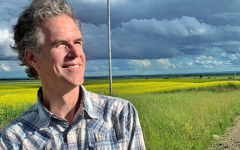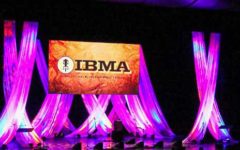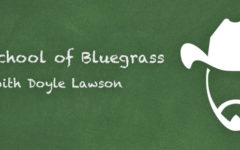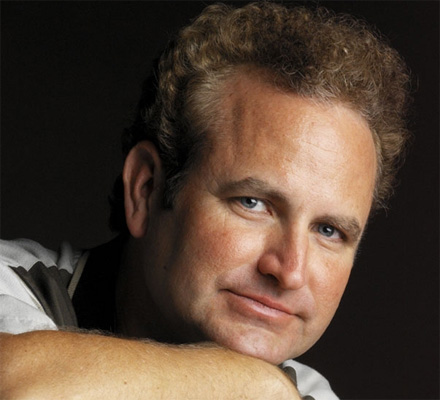
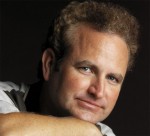 Once when asked how he managed to write three columns a week, the conservative commentator William F. Buckley replied that the world reliably annoyed him three times a week.
Once when asked how he managed to write three columns a week, the conservative commentator William F. Buckley replied that the world reliably annoyed him three times a week.
The world of bluegrass reliably annoys, amuses, and astonishes me at least that often.
That said, I know I ask a lot of readers of this column. You never know what you’re going to get: a Marxist manifesto (Groucho, not Karl), a satire on the state of the music industry, a trivia contest, a rumination on obscure bluegrass history, a short story, a review of lawn chairs, or even a recipe for funnel cakes.
Today—while many of you are recovering from World of Bluegrass—I thought I’d talk about something that has been in the air lately: freedom of speech.
You may well ask what that has to do with a forward roll, but as the great banjo player William Faulkner once said, “We must be free not because we claim freedom, but because we practice it.” And that might be the only thing I and the other writers at Bluegrass Today have in common with Faulkner: we practice free speech.
I realize bluegrass is not known for being on the cutting edge of social change, nor is it usually what people think of as pushing the boundaries of acceptability. And I understand that there are subtle ways to inhibit free expression. But for the most part, we have a fairly open and honest dialog under our tent.
I’m sure that if I wrote something outrageous or offensive, John Lawless would keep it from ever seeing print, and that’s his right. But beyond that, I don’t have to worry about insulting an oversensitive government, established church, or controlling organization (really, for all the kvetching about IBMA, you can’t call it intrusive or controlling).
I do sometimes worry about insulting a small, sometimes sensitive segment of the bluegrass world. There is a certain amount of bluegrass outrage that’s easily stirred up. But I accept that and nibble at it around the edges in, I hope, a humorous way.
The First Amendment states, “You can say whatever you want anytime you want.” Well, no, but because we have freedom of speech, I can write that and it’s up to you to fact-check it.
Actually, the First Amendment says:
Congress shall make no law respecting an establishment of religion, or prohibiting the free exercise thereof; or abridging the freedom of speech, or of the press; or the right of the people peaceably to assemble, and to petition the Government for a redress of grievances.
Those guys knew how to pack a lot into a sentence.
Janet and I went to hear the author Salman Rushdie speak in San Diego the other night. He’s on a book tour for his new memoir, Joseph Anton, about his years under the fatwa when, in 1989, the Ayatollah Khomeni sentenced him to death for his novel The Satanic Verses.
I’ve had bad reviews before, but I’ve never had a bounty put on my head by Bluegrass Unlimited.
I honestly can’t imagine going through what Rushdie has for over 20 years. Of course, the whole issue has come up again with the posting on YouTube of an offensive and amateurish trailer that is anti-Islam to say the least.
Rushdie rightly pointed out that the violent reaction to the trailer was fanned mostly by extremists for political, not religious, reasons. (And as Bill Maher said, “Don’t those guys know YouTube has a comments section?”)
But Rushdie was clear in his belief that that idiot in California had a right to make an amateurish and offensive trailer. In the US, offensive and amateurish speech is still protected speech. So, even, is hate speech that advocates or causes violence. Our national history is partly a series of contested cases and precedents for expanded or conscribed speech. Mostly expanded.
No, you can’t shout fire in a crowded theater, nor can you verbally assault co-workers without paying the cost, but we have a remarkable degree of freedom of expression in this country. Ask any stand-up comedian.
Songs. I don’t know of any bluegrass songs that have been banned, but if you know of a case, I’d love to hear about it. Kitty Wells’ It Wasn’t God Who Made Honky Tonk Angels was banned by NBC radio and the Grand Ole Opry when it first came out.
I was once asked by a festival promoter not to perform a song I wrote called 20 Naked Pentecostals in a Pontiac. It was his festival and, to be honest, I was thrilled that I could at last say that a song of mine had been banned. The song is based on a true story, but does have the word naked in it. I was fine with his request and didn’t sing it.
Now, if there were some law saying that I couldn’t use the word naked in a song, or that I couldn’t point out that these people happened to be Pentecostals, which was true, then I’d have a problem with it.
This week is Banned Books week, recognized by the American Library Association (ALA) and other organizations dedicated to freedom of speech. It’s a worthy cause and one that deserves eternal vigilance, but it also points to how few instances of suppression we have in this country.
According to the ALA, since 1982, more than 11,300 books have been challenged. That is, there have been 11,300 reports of attempts to ban books in libraries. In 2011, there were 326 challenges, among them books like The Hunger Games by Suzanne Collins, The Absolutely True Diary of a Part-Time Indian by Sherman Alexie, and, yes, again, To Kill a Mockingbird by Harper Lee.
There are different forms of censorship and it’s an ongoing discussion to determine where self-expression and community values sometimes collide. Freedom of speech is the bedrock of democracy and is what makes America—I’ll say it—exceptional.
I could end there, but it doesn’t feel right to end on a trumpet note of triumphalism. The hardest part of freedom of speech is acknowledging other people’s right to be heard, especially when their opinion differs from yours. That takes, most of all, the humility to understand that no one has the right to tell another person what to say, read, watch, or listen to.
Although I wasn’t at World of Bluegrass this year, I heard from John Lawless how the bluegrass world “just spent a week considering the question of how elastic the boundaries of the music should be, and how much we [as a community] value the ability to aggressively promulgate our point of view.”
One outcome of a spirited and heartfelt debate is that you hone your understanding of freedom of speech. We have our differences in bluegrass, but all sides—and all shades—of that debate, deserve the right and the respect to be heard. It’s an extra step to try to understand where another person is coming from, but at least listening is a start.
We should celebrate what is possible only in a society that values free speech—the freedom to speak fearlessly.

